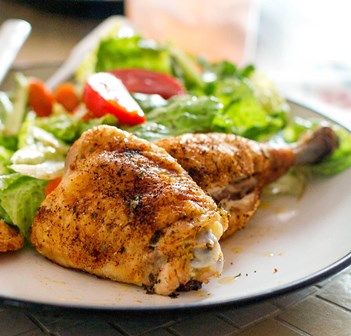
First it was eggs, now chicken shortages loom in SA
South African consumers scrambling to buy eggs while they are still on retail shelves should expect meat shortages in the coming weeks as the avian flu outbreak affects on the supply of chicken.
We may be lucky to still find supermarket fridges and freezers stocked with chicken come Christmas time, but it could be touch and go.
The egg shortage is also expected to still be in play for the next six to 18 months.
Although the avian flu outbreak in the country is now affecting the supply of eggs, Izaak Breytenbach, chief executive of the South African Poultry Association (Sapa), says it has not yet impacted the supply of meat, but that this will change.
“We expect to start seeing a shortage of meat in about eight weeks as we start to see the impact of the birds culled.”
So far, 2,5 million broiler birds – chickens that are raised specifically for meat, have been slaughtered, so this will eventually take its toll on the number of these birds available for food supply.
More positively, however, he says that demand for chicken is usually highest at this time of the year until the end of the year, but drops at the beginning of the year. This means consumers may be lucky to have sufficient availability of chicken for their holiday celebrations. Still, Breytenbach admits that it may not be a bad idea to buy your chicken while there is still retail supply, and then freeze it for use over December.
When it comes to the supply of eggs, he says the shortage – not complete lack of supply – could continue for the next six to 18 months as this is how long it will take the industry to replace the birds that have been culled.
“About 70 percent to 80 percent of flocks are still on the ground so the industry is still producing eggs and meat. So there won’t be a case of no eggs or meat at all, just a shortage.”
To mitigate the effects of the avian flu on the industry, Breytenbach says the industry is keeping the current flocks longer to allow them to lay more eggs. It has also applied to import 21,5 million hatching eggs from Brazil, the USA, Ireland, Spain, and Argentina.
Consumers can be assured that the eggs and poultry that they will find in the marketplace are safe to eat.
“If there is an outbreak on a farm, we kill all the birds and destroy all the eggs on it. So people can be comfortable that the food they are eating is safe. Even though avian flu is a poultry disease and does not affect humans, the eggs and chicken that do make it to the market are safe from the disease.”
While avian flu is not a new disease, he explains that, over the years, it has evolved. Historically, the virus was incidental but over the past couple of years has become more endemic, and the global industry has “struggled to control it”.
“We don’t know the real reason why, but for one thing, we have a lot more chicken in the world, so more viruses are flying around. Wild birds migrating also distribute the virus around the world.”
South Africa has experienced outbreaks of avian flu in 2017 and 2021, but the current outbreak is the worst. So far, 7,5 million birds have been culled – five million common laying birds and 2,5 million broiler birds. This amount is almost double the number that was culled during 2017 and 2021 combined, Breytenbach explains.
Knowledge of the virus and past experience therefore make it difficult to say when the country can expect to see the end of this current outbreak.
“If we look at the epidemic curve, there have been more and more outbreaks over the past 10 weeks, but at the moment we are not seeing any further increase. There is, however, no decline yet.”
Therefore, he says consumers can expect the egg shortages to continue for the rest of the year and at least the first six months of next year. The lulled impact of the virus will then result in the expected shortage in meat.
IOL Business
News Category
- International retailers
- On the move
- Awards and achievements
- Legislation
- Wine and liquor
- Africa
- Going green
- Supplier news
- Research tools
- Retailer trading results
- Supply chain
- Innovation and technology
- Economic factors
- Crime and security
- Store Openings
- Marketing and Promotions
- Social Responsibility
- Brand Press Office
Related Articles

Warning of Eskom collapse

Knorr recalls brown onion gravy sachets

Eskom CEO shares good news about load-shedding

Tax warning for South African businesses


